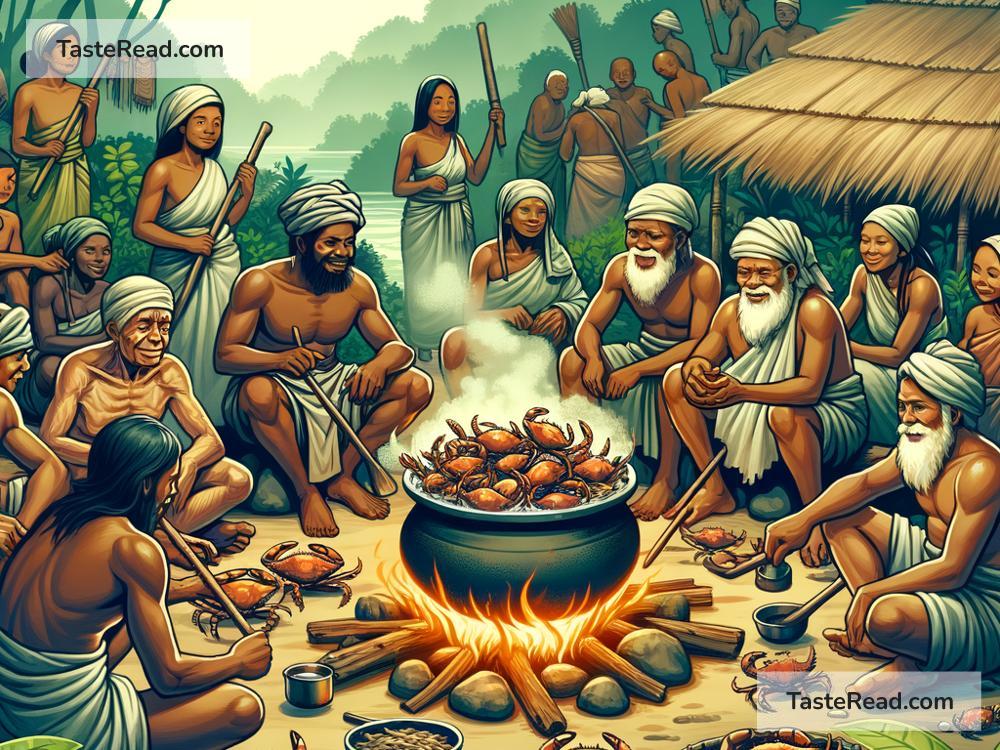The Origins of the First Crab Boil in Ancient Tales
Seafood boils are a cherished tradition across many cultures today, but have you ever wondered where it all began? The idea of cooking crab and other shellfish in boiling water, seasoned with herbs and spices, might seem straightforward, but its origins tell a fascinating story rooted in ancient tales and traditions. Let’s journey back to the mythical beginnings of the crab boil, exploring how this delicious cooking method may have started.
Life by the Sea and the First Shellfish Feast
For thousands of years, humans have lived by the sea. The ocean wasn’t just a beautiful sight—it was also a source of food. Early people ate whatever they could gather from the shores: seaweed, fish, and shellfish. Among these, crabs were a curious catch. Their hard shells made them tricky to eat, but once humans figured out how to crack them open, they discovered crab meat was delicious and rich in nutrients.
In ancient times, cooking methods were simple. Early people didn’t have the spices, techniques, or cookware we use today. Sometimes, they would place crabs directly over fire, roast them with hot stones, or cook them in basic vessels filled with water. Over time, these early cooks may have experimented by adding wild plants and herbs to the boiling water, hoping to enhance the flavor. What started as survival slowly turned into culinary creativity.
Mythical Origins: A Feast of Legends
While we can point to human ingenuity as the logical origin of crab boils, many cultures also share mythical tales about how the first seafood feasts began. In one such story from coastal tribes in ancient folklore, the crab boil was said to be a gift from the gods.
One version of the tale describes a starving fisherman who lived on the edge of the sea. He was struggling to feed his family, as fish had grown scarce. One day, he saw strange creatures crawling along the shore—crabs. Hesitant to eat them, he prayed to the ocean gods for guidance. As the legend goes, the goddess of the sea appeared to him and taught him how to cook crabs by boiling them in seawater and adding edible herbs gathered from the nearby cliffs. The fisherman followed her instructions and fed his family a meal so delicious that it lifted their spirits and sustained them through the difficult times. From that day forward, families by the sea embraced crab boils as a sacred gift from the gods.
Early Crab Boil Traditions in Coastal Civilizations
Ancient civilizations developed unique ways to prepare crab. In some cultures, boiling crabs became a communal activity, turning mealtime into a celebration. In Southeast Asia, for example, stories mention early seafood feasts in fishing villages. Fishermen would gather their catch, and the community would cook it together in large pots brimming with seawater, tropical spices, and fragrant herbs. The meal would then be shared, connecting people through food and stories.
In ancient Europe, shellfish feasts may have roots in early Celtic and Norse traditions. Coastal tribes often created meals that reflected their connection to the land and sea. They would boil crabs and shellfish during seasonal festivals, believing that the act of cooking seafood honored the spirits of the ocean, which provided them with sustenance.
Meanwhile, along the coasts of Africa, ancient crab boils were enriched with local vegetation and spices. Tribes used flavorful roots, seeds, and leaves to season the boiling water, creating vibrant and aromatic dishes. These early traditions helped inspire modern methods of seasoning seafood boils with bold spices.
The Spice Boom and Evolution of Crab Boils
As trade routes flourished and spices began circulating around the world, crab boils transformed dramatically. Ancient cooks who once relied on local herbs were suddenly introduced to new and exotic ingredients—pepper, chili, garlic, and bay leaves. The arrival of these spices revolutionized seafood cooking and turned a simple boiled crab into a dynamic dish full of flavor.
By the time seafood boils made their way into modern history, they had become popular in regions like Louisiana in the United States. Here, European, African, and Caribbean cooking traditions combined to create intensely flavorful crab boils, seasoned with cayenne pepper, paprika, and garlic, and often served with corn and potatoes. These crab boils are what many people know and love today, but their roots go back much farther than modern recipes.
Continuing the Tradition
The origins of crab boils remind us that food is more than just sustenance—it’s a way to connect with nature, celebrate community, and share stories. Whether the first crab boil started as a gift from the gods, a lucky experiment, or simply human adaptability, it has grown into a tradition loved all around the world.
So next time you’re enjoying a crab boil, take a moment to remember the ancient tales and cultures that inspired this flavorful feast. From the shores of the past to tables of today, the crab boil remains a timeless celebration of creativity and human ingenuity.


